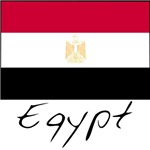NEWS FEATURE: A rare silence falls on site of Cairo bomb attack
 Cairo - An hour after a bomb exploded near the steps of Cairo's landmark Hussein Mosque in the heart of the city's Medieval quarter, little remained to testify to the chaos and the panic that had so recently gripped the area.
Cairo - An hour after a bomb exploded near the steps of Cairo's landmark Hussein Mosque in the heart of the city's Medieval quarter, little remained to testify to the chaos and the panic that had so recently gripped the area.
Footprints led through puddles of blood on the mosque's marble steps. Plainclothes police rapidly escorted tourists out of the area. Police in riot gear, illuminated by ambulances' flashing lights and wailing sirens, blocked the main entrances to the normally crowded square in front of the mosque. Crowds of curious neighbours and journalists crowded the blockades.
When the bomb exploded, killing one French woman and injuring 21 other people, including a young Egyptian child, the blast blew out glass from nearby shop windows. Witnesses told Deutsche Presse-Agentur dpa that the ground shook, buildings buckled, and items on display in stores fell off their shelves from the strength of the explosion.
An hour afterwards, the blood remained, but the glass had been swept away. In fact, the clearest sign that something had gone wrong was the quiet. Hussein Square is never empty, and it is never quiet.
Tourists and Egyptians alike throng to its cafes and shops at all hours of the night. Hawkers selling papyrus, taxidermy, key chains, fake watches, and perfumes normally call out to customers in at least half a dozen languages.
On Sunday night, everyone spoke in soundbites. A Swiss-German tourist, who gave his name only as Andreas, assumed the brisk tone of a government spokesman when asked what he'd seen.
"We heard a loud explosion and saw everyone running. The police came very quickly to escort us out of the area. We have no further information," he told dpa.
A portly café owner who sat smoking a water pipe only 30 metres from the site of the blast, perhaps 90 minutes after the bomb went off, spoke in the nationalist cadences of an Arab politician on satellite television, and yet he would not give his name because he said plainclothes police officers had told residents not to talk to journalists.
"Egypt is bigger and stronger than the cowards who did this," he said, warming to his role. "Egypt is the mother of the world, the mother of all countries, a great country of farmers and engineers and brave soldiers."
On Monday, the square was unnaturally quiet again, and security was as tight. And Ahmad Abdallah, a 28-year-old shopkeeper who works steps from the centre of the blast, spoke in the same proud cadences.
"There's no way an Egyptian could have done this attack. There's no way an Egyptian could do this to his own country," he said. "This had to have been a foreigner trying to harm Egypt's reputation as a safe country."
The quiet in that descended on the blast site Sunday night and Monday morning was unusual. But the characteristic Egyptian humour and resiliency residents maintained seemed to suggest the neighbourhood would recover from this attack, as it had from previous attacks.
In a back-alley approach to the blast site on Sunday night, a group of Arab and foreign journalists trying to skirt the security cordon by approaching from behind shared a joke with the policemen sent to stop them.
"That one could be from the New York Times," a passerby joked as a foreign journalist with a long telephoto lens walked by. "Papyrus, papyrus," another joked, parodying hawkers' calls, as a foreign journalist interviewed witnesses.
And on Monday, when dpa asked a group of neighbourhood youths who they thought had perpetrated the attack, one responded, "I dunno. Ahmed, who do you think did it?"
"I have no idea," Ahmed responded. "Colombo?" (dpa)